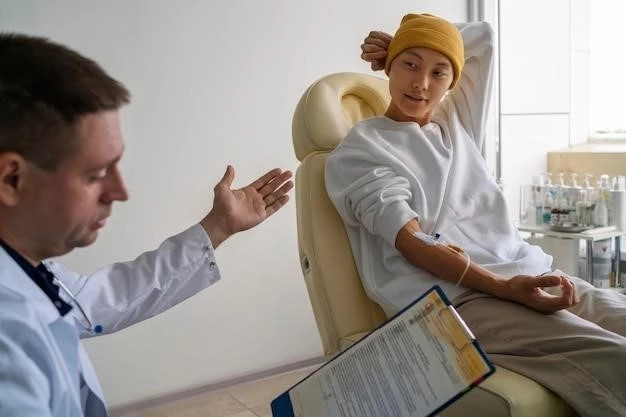Introduction to Sclerosing Cholangitis
Primary Sclerosing Cholangitis (PSC) is a rare but serious, chronic cholestatic fibroinflammatory liver disease characterized by progressive and multifocal fibrosis of the biliary system, which typically results in cirrhosis and fibrotic liver diseases.
Overview of Primary Sclerosing Cholangitis (PSC)
Primary Sclerosing Cholangitis (PSC) is a rare, chronic liver disease characterized by inflammation, scarring, and narrowing of the bile ducts, leading to liver damage. It often coexists with inflammatory bowel diseases like ulcerative colitis and can progress to cirrhosis and liver failure. Early detection and treatment play a crucial role in managing the disease and improving outcomes.
Clinical Features of Sclerosing Cholangitis
Sclerosing cholangitis presents with symptoms like fatigue, itching, jaundice, abdominal pain, and fever, often associated with inflammatory bowel diseases.
Symptoms and Complications
Symptoms of sclerosing cholangitis may include fatigue, itching, jaundice, abdominal pain, fever, and weight loss. Complications can include cirrhosis, liver failure, bile duct infections, and an increased risk of liver cancer.
Causes and Risk Factors of Sclerosing Cholangitis
Sclerosing cholangitis is thought to be caused by a combination of genetic and environmental factors, with an overactive immune system playing a role in the disease.
The exact cause of primary sclerosing cholangitis (PSC) remains unclear, but it is believed to involve a combination of genetic predisposition, environmental factors, and an immune system dysfunction that contributes to the progression of the disease.
Diagnosis of Sclerosing Cholangitis
Diagnosing sclerosing cholangitis involves using imaging techniques like MRI cholangiopancreatography to visualize biliary tree abnormalities and confirm the presence of strictures and beading in the bile ducts.
Etiology and Pathogenesis
Primary sclerosing cholangitis (PSC) is a chronic liver disease of unknown origin characterized by inflammation, fibrosis, and narrowing of the bile ducts, leading to complications such as cholestasis and liver failure. The disease progression involves a complex interplay of immune responses and genetic predispositions, contributing to the pathogenesis of PSC.
Treatment Options for Sclerosing Cholangitis
Treatment for sclerosing cholangitis focuses on managing symptoms, monitoring liver function, and addressing bile duct complications through endoscopic procedures and medications.
Management Strategies and Therapeutic Approaches
Management of sclerosing cholangitis involves a multidisciplinary approach, including medications to reduce inflammation, control symptoms, endoscopic interventions to alleviate bile duct blockages, and in severe cases, liver transplantation may be considered to improve outcomes.
Association with Inflammatory Bowel Disease
Sclerosing cholangitis commonly coexists with inflammatory bowel diseases like ulcerative colitis or Crohn’s disease, affecting the biliary system and liver.
Relationship between PSC and IBD
Primary sclerosing cholangitis (PSC) is commonly associated with inflammatory bowel disease (IBD), particularly ulcerative colitis. The coexistence of these conditions can worsen liver complications and overall disease progression.

Prognosis and Survival Rates in Sclerosing Cholangitis
Primary sclerosing cholangitis (PSC) has a variable prognosis with some patients experiencing complications leading to liver failure or the need for liver transplantation.
Outcomes and Long-Term Prognosis
Patients diagnosed with primary sclerosing cholangitis (PSC) face a variable prognosis, with some experiencing liver complications that can progress to cirrhosis, liver failure, or necessitate liver transplantation. Monitoring and managing the disease are crucial for long-term outcomes.
Research and Innovations in Sclerosing Cholangitis
Recent advancements in the understanding of primary sclerosing cholangitis (PSC) have led to novel treatment strategies and therapies, providing hope for improved outcomes and management of this complex liver disease.
Advancements in Treatment and Novel Therapies
Recent advancements in the treatment of primary sclerosing cholangitis (PSC) have led to the development of novel therapies and treatment strategies aimed at improving patient outcomes and quality of life. These innovative approaches offer promising prospects for managing this complex liver condition.
Sclerosing cholangitis is linked to an overactive immune system attacking the bile ducts, contributing to liver damage and disease progression.
Sclerosing cholangitis is closely linked to dysfunction in the immune system, where an overactive immune response leads to the inflammation and damage of the bile ducts within the liver.
Hereditary Factors and Genetic Predisposition in Sclerosing Cholangitis
Sclerosing cholangitis may have genetic influences and environmental factors contributing to its development, often linked to an overactive immune system.
Impact of Immune System Dysfunction in Sclerosing Cholangitis
Sclerosing cholangitis is closely linked to immune system dysfunction, where an overactive immune response targets the bile ducts, contributing to liver damage and disease progression.
Endoscopic Therapy for Sclerosing Cholangitis
Endoscopic therapy is crucial in managing sclerosing cholangitis by treating strictures and blockages in the bile ducts, improving bile flow and reducing complications.
Role of Endoscopic Procedures in Managing the Disease
Endoscopic procedures play a crucial role in the management of sclerosing cholangitis by enabling the dilation of strictures in the bile ducts, enhancing bile flow, and alleviating blockages, thus improving the patient’s overall condition and reducing the risk of complications.

Challenges in Differential Diagnosis of Sclerosing Cholangitis
Differentiating sclerosing cholangitis from other biliary disorders poses diagnostic challenges, requiring detailed imaging techniques and clinical correlation for accurate identification.
Identification and Distinction from Other Biliary Disorders
When diagnosing sclerosing cholangitis, distinguishing it from other biliary disorders can be challenging and requires a comprehensive evaluation using advanced imaging techniques and thorough clinical assessment to ensure accurate identification and appropriate management.
Emerging Treatment Options for Sclerosing Cholangitis
Recent advancements in treatment offer new hope for managing primary sclerosing cholangitis (PSC) effectively, improving patient outcomes and quality of life.
Novel Therapeutic Approaches and Clinical Trials
Recent advancements in the treatment of primary sclerosing cholangitis (PSC) have paved the way for novel therapeutic approaches and ongoing clinical trials, offering hope for more effective management of the disease and potentially improving patient outcomes.
Global Market Trends and Economic Impact of Sclerosing Cholangitis
The global market for primary sclerosing cholangitis (PSC) is projected to grow significantly, reaching a value of $314.26 million by 2033٫ with a compound annual growth rate (CAGR) of 7.6%٫ reflecting the increasing economic impact of this liver disease.
Market Forecast and Financial Implications
The projected growth of the global market for primary sclerosing cholangitis (PSC) indicates a significant economic impact, with expected value reaching $314.26 million by 2033, reflecting a substantial rise driven by advancements in disease management and therapies.
Patient Perspectives and Quality of Life in Sclerosing Cholangitis
Living with primary sclerosing cholangitis (PSC) poses challenges, impacting daily life. Patients often deal with symptoms and adjust to the disease, finding ways to cope and maintain their quality of life;
Living with the Disease and Coping Strategies
Patients with primary sclerosing cholangitis (PSC) face challenges dealing with symptoms such as fatigue, itching, jaundice, and abdominal pain. Coping strategies involve medical management, lifestyle adjustments, emotional support, and creating a strong healthcare network to navigate the complexities of the disease and improve their quality of life.
Public Awareness and Advocacy for Sclerosing Cholangitis
Increasing public awareness and advocacy efforts for primary sclerosing cholangitis (PSC) aim to educate individuals, support patients, and promote research advancements and resources for better disease management and outcomes.
Educational Campaigns and Support Networks
Educational campaigns and support networks play a vital role in raising awareness about primary sclerosing cholangitis (PSC), providing valuable information to patients, caregivers, and healthcare professionals. By offering resources, guidance, and a platform for sharing experiences, these initiatives aim to enhance understanding, facilitate access to care, and promote advocacy for improved outcomes for individuals living with PSC.
